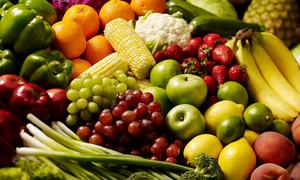
Depression is one of the most common chronic diseases in Australia with up to 1 in 5 people experiencing it sometime during his or her life. It is characterised by a range of symptoms including a low mood, lack of enjoyment in everyday activities, low energy, agitation, inability to concentrate, appetite changes, and changes in sleeping habits. Conventional treatments options for people suffering from depression include psychological therapies such as cognitive behaviour therapy (CBT), and antidepressant medication.
Despite the limited number of conventional treatments currently available, there are some ‘alternative strategies’ that have demonstrated their effectiveness in treating depression. One of these strategies relates to diet/ nutrition. It appears that following a Mediterranean diet is protective against the development of depression. This diet contains a range of natural, whole foods including seafood, vegetables, fruits, whole grains, legumes, and healthy fats (e.g., olive oil). Conversely, following a standard Western diet which contains a range of processed foods, trans fats, and high fat/ high sugar foods increases a person’s risk of developing depression [1].
The foods a person consumes regularly can play a major role in whether or not they develop depression. Certain foods, particularly natural foods, can reduce the risk of developing depression because they reduce inflammation, lower oxidative stress (from excess free radicals), increase the production of mood-boosting neurotransmitters, and reduce the levels of stress-related hormones such as cortisol. People who suffer from depression tend not to have these physiological responses occurring in their body resulting from the food they eat [2].
Here are some foods that you should consider consuming regularly to reduce your risk of developing depression:

The best types of fish to consume are those high in omega-3s. These include salmon, mackerel, sardines, trout, and tuna. Omega-3s helps to reduce inflammation in the body. Elevated levels of inflammation is associated with depression. Moreover, research now demonstrates the ability of fish oil to lower depressive symptoms [3].

Since inflammation and oxidative stress are associated with depression, reducing these effects in the body can certainly help to reduce depressive symptoms. Herbs and spices such as turmeric, saffron, parsley, cloves, etc. offer powerful anti-inflammatory effects as well as containing a range of beneficial antioxidants that have profound effects on the brain and body.
For example, saffron has demonstrated antidepressant effects in several clinical studies. Moreover, it is more powerful than a placebo and is as effective as antidepressant medication for treating mild-to-moderate depression [4]. When saffron is taken in conjunction with an antidepressant the effectiveness of the antidepressant medication is increased [5].
Even though saffron is said to be the most expensive spice in the world, only 30mg a day is needed to have a therapeutic effect.

Mood-boosting neurotransmitters are manufactured in the body from protein. Therefore, is it essential that we consume an adequate amount of it each day. A deficiency of protein, particularly tryptophan, may lead to mood-related problems. Moreover, a low-tryptophan diet increases the risk of relapse in people suffering from depression [6]. Some examples of lean protein foods include eggs, legumes, fish, chicken, beef, pork, turkey, and lamb.

Fruits and vegetables contain a wide range of antioxidants and therefore, may be protective against depression. The different colours of the fruits and vegetables indicate different antioxidants, meaning a wide variety should be consumed to ensure best results. Moreover, they also contain B-vitamins which are required for the manufacture of neurotransmitters such as serotonin.

Nuts and seeds are a good source of protein and healthy fats. This means they can certainly have a positive impact on mood. The best nuts and seeds to consume include walnuts, almonds, cashews, Brazil nuts, pumpkin seeds, and sunflower seeds.
If you or someone you love suffers from depression, then make an effort to eat these foods as often as possible and limit your intake of foods that may have a negative effect on your mood.
Below is a graph summarising the results of a recent study. [7] It shows the improvements people made (reduction in depression scores) by attending a social group for 3 months or by following a Mediterranean diet. It demonstrates the efficacy of diet/ nutrition interventions for reducing depressive symptoms.

Fig. 1. Reduction in Depression-Anxiety-Stress Scores (DASS) From Social or Dietary Interventions
References
Session expired
Please log in again. The login page will open in a new tab. After logging in you can close it and return to this page.